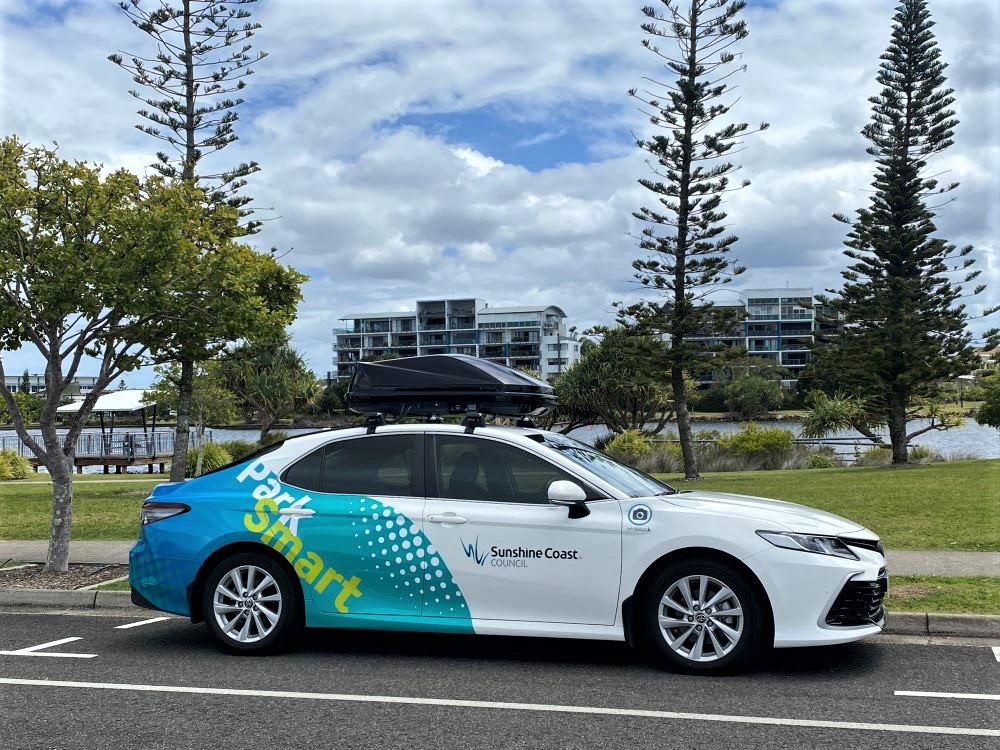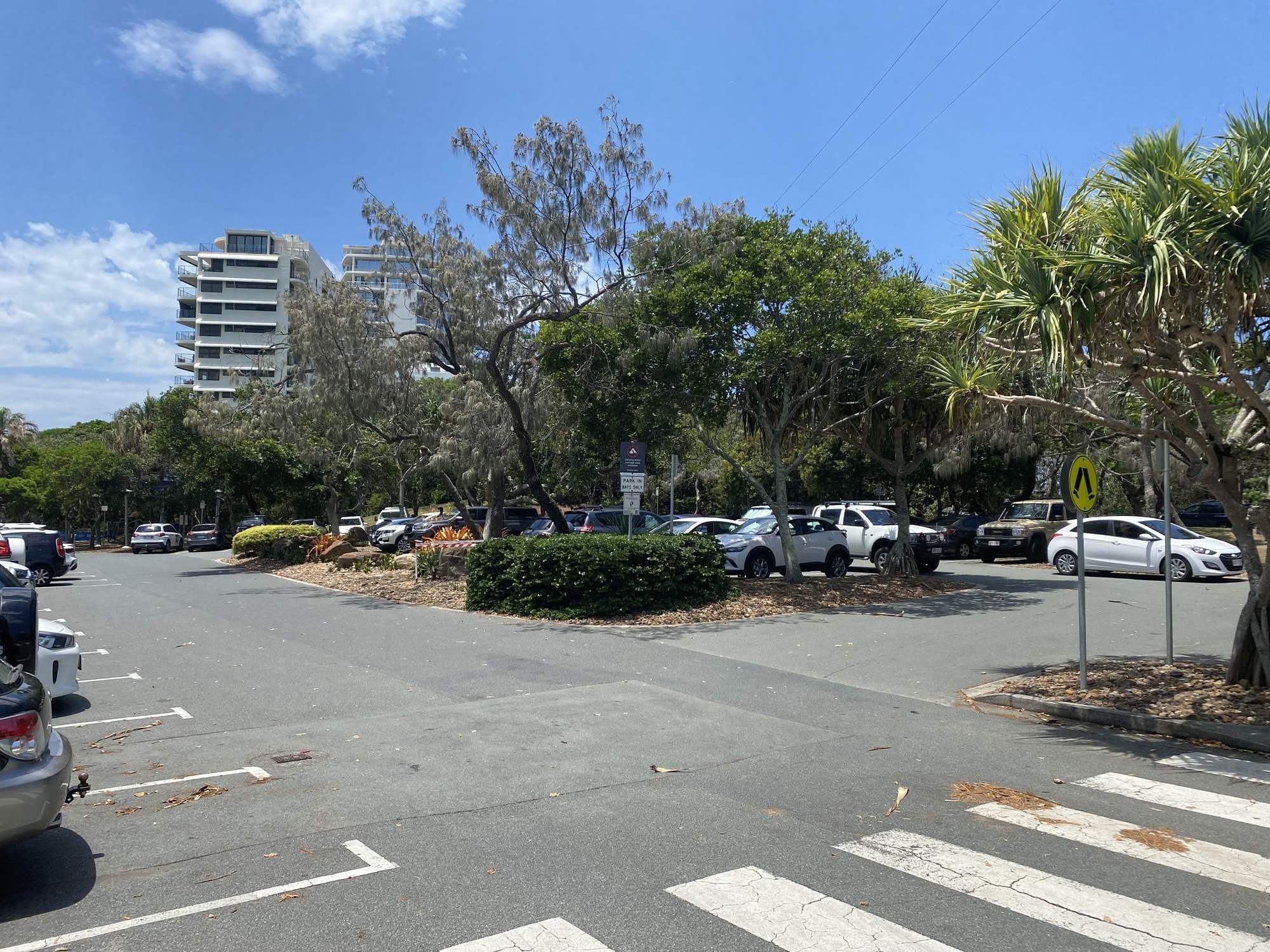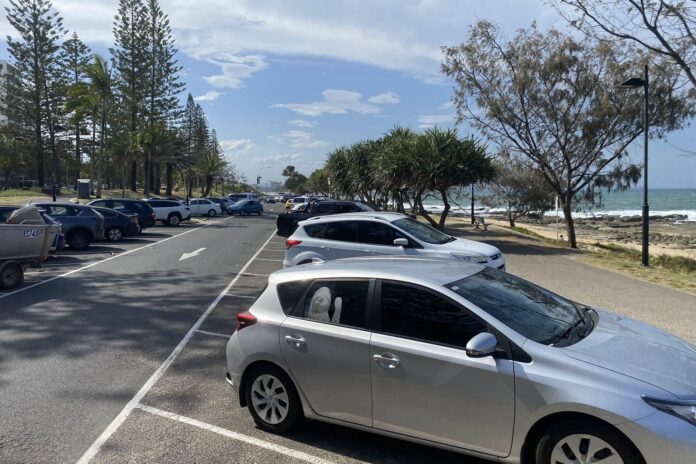There has been a stark increase in the number of parking fines issued around the region, after a new type of surveillance was introduced by Sunshine Coast Council.
More than 15,000 infringements were issued in the first six months of this year, which is 45 per cent more than the corresponding timeframe two years ago.
The increase brings the amount of parking fines back to pre-pandemic levels and it comes after council implemented its award-winning ParkSmart initiative, which involves car park monitoring from hybrid vehicles equipped with number plate recognition technology.
The program has also led to a reduction in the number of incidents involving drivers and parking officers, which were sometimes violent.
Statistics showed there were 10 to 20 incidents per year, but that’s been slashed to just one.
ParkSmart was initially rolled out as a trial at Caloundra in 2022 but has since expanded to include three vehicles at six locations.

A council spokesperson said it was introduced “to monitor parking in high-use and residential permit areas”.
“The primary goal was to create impartial and safe access to various locations across our popular regions,” they said.
“The technology enhances monitoring of parking behaviour, promoting vehicle turnover and ensuring equitable access to parking spaces.
ParkSmart vehicles patrol Caloundra, Birtinya, Nambour, Maroochydore, Alexandra Headland and Mooloolaba.
Council held four-week educational programs in each of the suburbs, to allow locals to become familiar with the new patrol approach. Caution notices were handed out instead of fines.
“The ParkSmart vehicles oversee timed parking, paid parking, loading zones, no-stopping areas and similar offences,” the spokesperson said.
Parking officers continue to be in operation.
“They continue foot patrols to ensure fair distribution of parking opportunities within the community,” the spokesperson said.
“Since the program’s inception, we’ve observed a significant reduction in occupational violence, fostering a safer work environment for our parking officers.
“Since the introduction of the ParkSmart program, incident reports have dramatically reduced from an average of 10 to 20 per year to just one.”
Council also introduced car park monitoring at Buderim Mountain State School in 2023.
“Static cameras were deployed at the school to alleviate parking challenges, further encouraging vehicle turnover and equitable access,” the spokesperson said.

Statistics provided by council show just how significant the increase in parking fines has been in recent years.
There were 10,328 infringements issued in the first six months of 2022, then 11,751 from January to June in 2023, and 15,009 during the same timeframe in 2024.
The most recent figures are similar to pre-pandemic numbers: council issued 16,809 infringements in the first half of 2019.
Council’s regulated parking program was paused during the onset and height of the pandemic in 2020 and 2021, when travel restrictions were at times in place.
The penalty unit amount for parking offences and on-the-spot fines is set at $154.80 per penalty unit for 2024-25.
Some offences and their penalty units include: stopping contra to a no-parking sign (0.75); stopping on a road with a yellow line edge (0.75); parking for longer than indicated (0.5); stopping on a nature strip (0.75) and stopping in a parking area for people with disabilities (4).
There was more than $2.107 million paid in parking fines in the 2021-22 financial year, and $2.518 million paid in 2023-24.
Council has a different approach to homeless people in public car parks.
The spokesperson said efforts were being made to address their plight.
“Council recognises that responding to homelessness is ‘Everybody’s Business’ and requires all levels of government and community to work together,” they said.
“Our Housing and Homelessness Action Plan outlines initiatives to support those experiencing homelessness.
“ParkSmart vehicles do not form part of council’s response to homelessness.
“Parking on the Sunshine Coast is regulated by the Transport Operations Road Use Management Act, the Transport Operations (Road Use Management – Road Rules), Regulations 2009, and local laws. Drivers are responsible for understanding and complying with these rules. For more information, visit council’s website.”
Do you have an opinion to share? Submit a Letter to the Editor at Sunshine Coast News via news@sunshinecoastnews.com.au. You must include your name and suburb.





